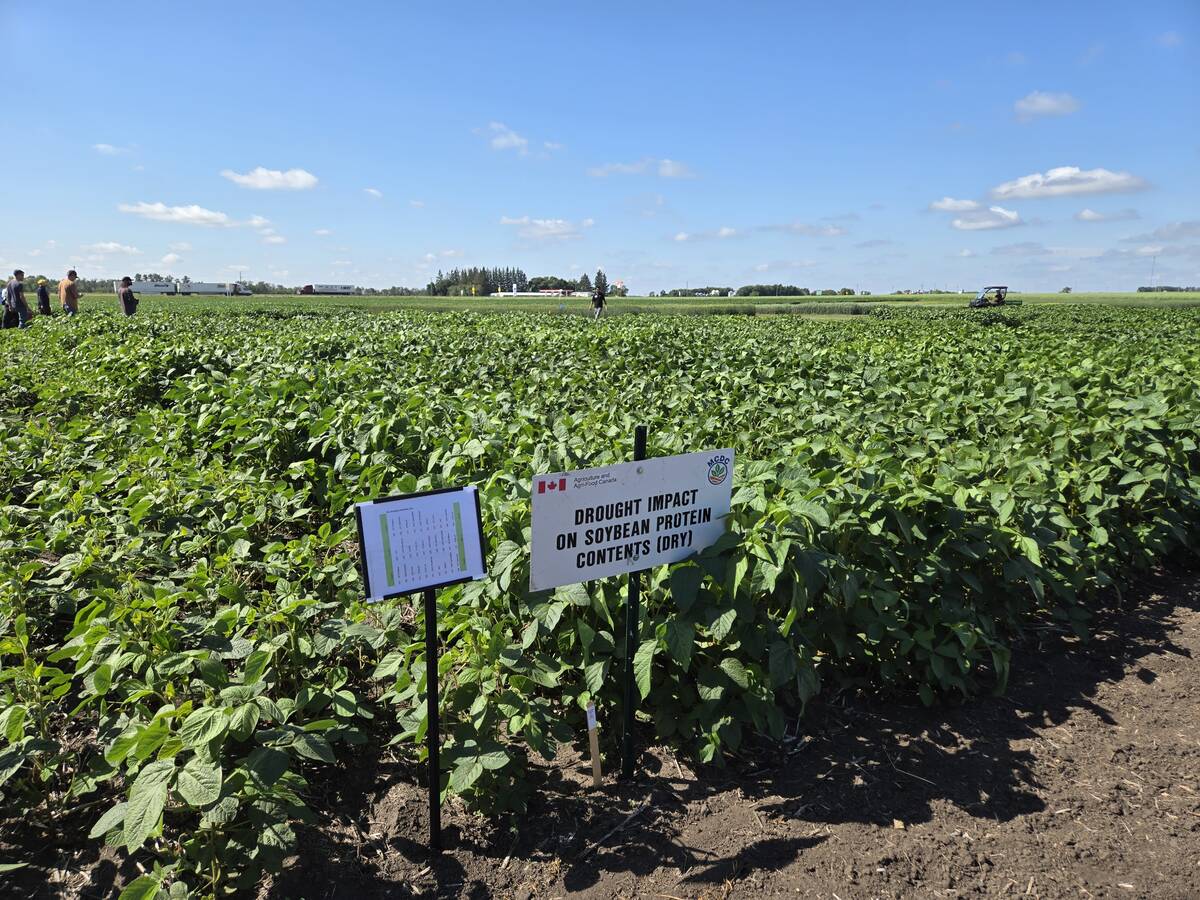Purebred animals may come and go, but the Canadian Livestock Records Corp. is here to stay.
That’s the impression of Ron Black, general manager of the CLRC, as it celebrates 100 years of service.
The national agency has seen much growth and change over its first century and its mandate has never wavered from providing quality livestock pedigree records on behalf of Canadian breed associations of all sizes.
Larger breed organizations decided they wanted to become independent, while many smaller associations that tried to go it alone returned to the CLRC, Black said.
Read Also

Carberry field day looks for agriculture solutions
Manitoba farmers explored research solutions for resilient crops, perpetual agronomic issues and new kinds of agricultural products at a field day at the Manitoba Crop Diversification Centre in Carberry on Aug. 6.
“We’ve moved from where we were servicing all of the associations to where we definitely are servicing the small ones.”
In 1904, provincial representatives and livestock associations met in Ottawa to discuss purebred livestock registration and the need for an organized national system. Within a year, CLRC was formed.
The early years were about growth, Black said. There were 11 breeds administered by the CLRC at the outset, but new associations later joined.
Technology has driven change. Tattooing as a means of identification was first, followed by artificial insemination, embryo transplants and computerization.
With increased technology and fewer animals registered, a staff of 12 can now do the work once done by 90.
Funding has also shifted over the century, Black said. At the CLRC’s inception, the federal government provided more than half the corporation’s budget through grants and in-kind donations. That dried up by 1995.
Since then the corporation has been fully funded by breed associations through fees for services.
The corporation handles pedigree registration and other administration for 52 breed associations including beef, dairy, horse, sheep, swine, goats, foxes, chinchillas, llamas, alpacas, bison and dogs.
No other country has a centralized livestock registry like the CLRC. Nor do they have federal legislation like the Animal Pedigree Act to govern the registration of purebred animals as closely as in Canada, said Black.
“We are quite unique in the world, actually.”
As for the future, he predicts a decline in beef, dairy and sheep registrations as farm and animal numbers drop. Cattle breeders no longer register every calf.
Swine are a different story. Their registration numbers are also declining, not because of a shrinking animal population but because of a fundamental shift in the industry.
Black also predicted an increase in horse registrations, as well as so-called hobby and alternative livestock breeds.














